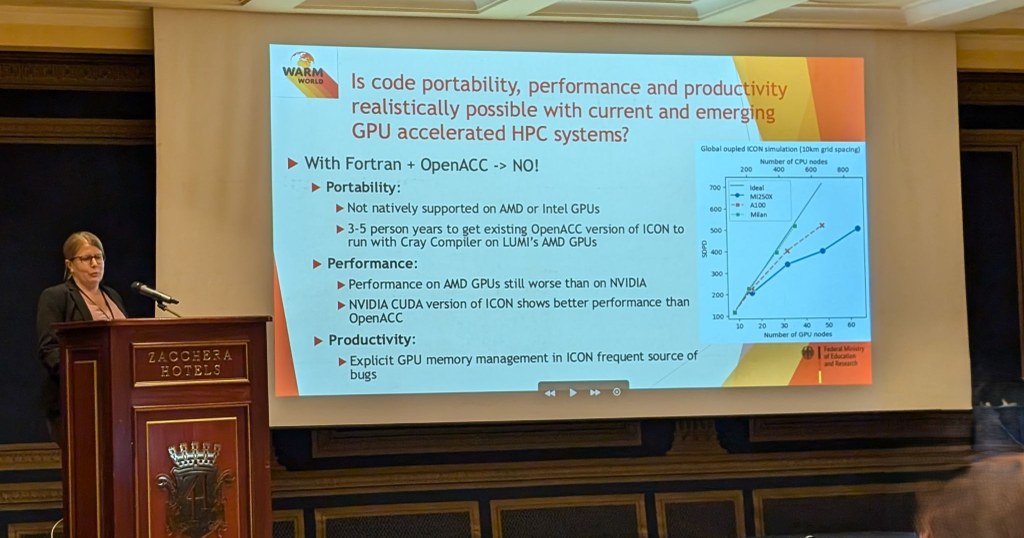16.09.2024
The biennial iCAS meeting is organized by the "National Center for Atmopsheric Research" (NCAR) and this year's theme was "Interdisciplinary and International Collaboration for Advancing Earth System Science".
On September 9th, Dr. Christopher Kadow opened the conference with his keynote speech on the future of data analysis and the growing role of the use of artificial intelligence (AI) and machine learning (ML) in earth system science.

In the panel discussion " Performance, portability and productivity for climate and weather codes in the age of accelerators: pipe dream or realistic ambition?", Dr. Claudia Frauen summarized the latest experiences gained at DKRZ and discussed them with the other experts and the audience.
On September 10, Dr. Jan Frederik Engels spoke in his lecture about efficient resource usage for large-scale earth system model simulations on heterogeneous hardware.
In summary, it was shown that the integration of AI/ML in weather and climate research will increase. Either as a replacement for traditional simulations or to support research tasks that are heavily based on data. The HPC landscape is also moving clearly towards AI-optimized performance. Here, earth system researchers and computer scientists must work together to develop new approaches to programming and workflows so that technical progress continues to lead to better research results.
Website for the iCAS conference including agenda: https://www.cisl.ucar.edu/events/icas-2024
